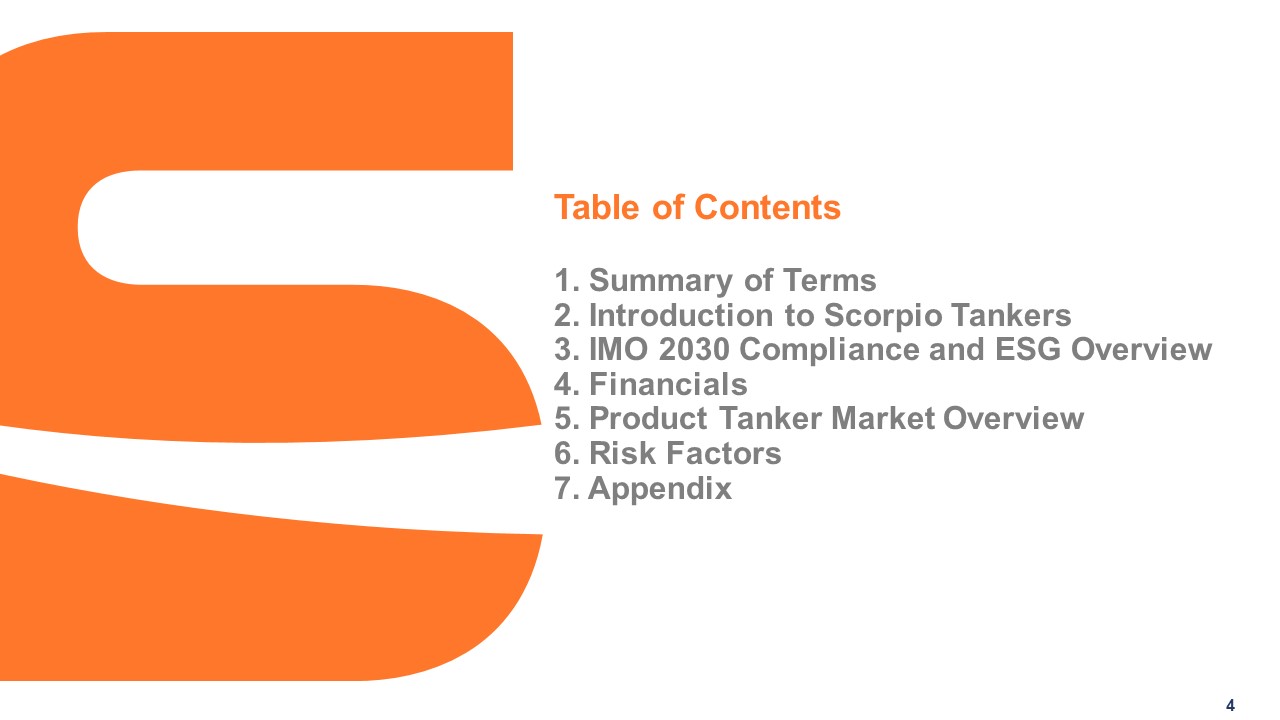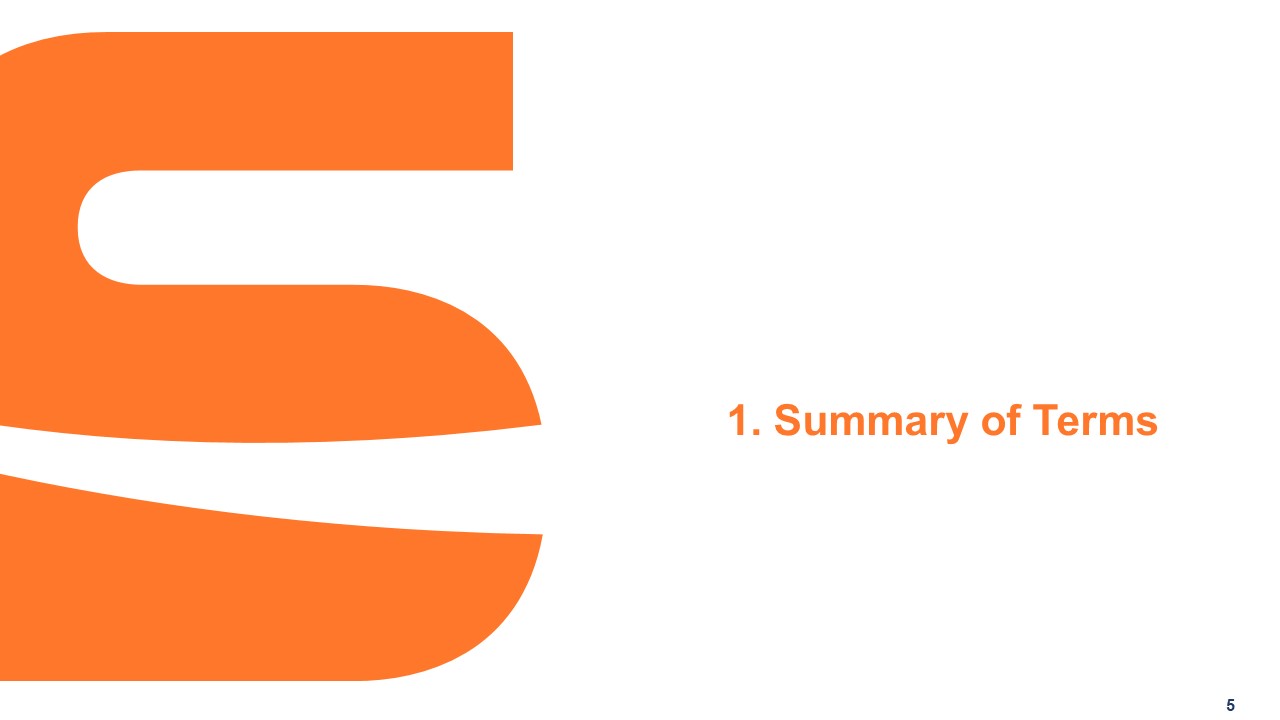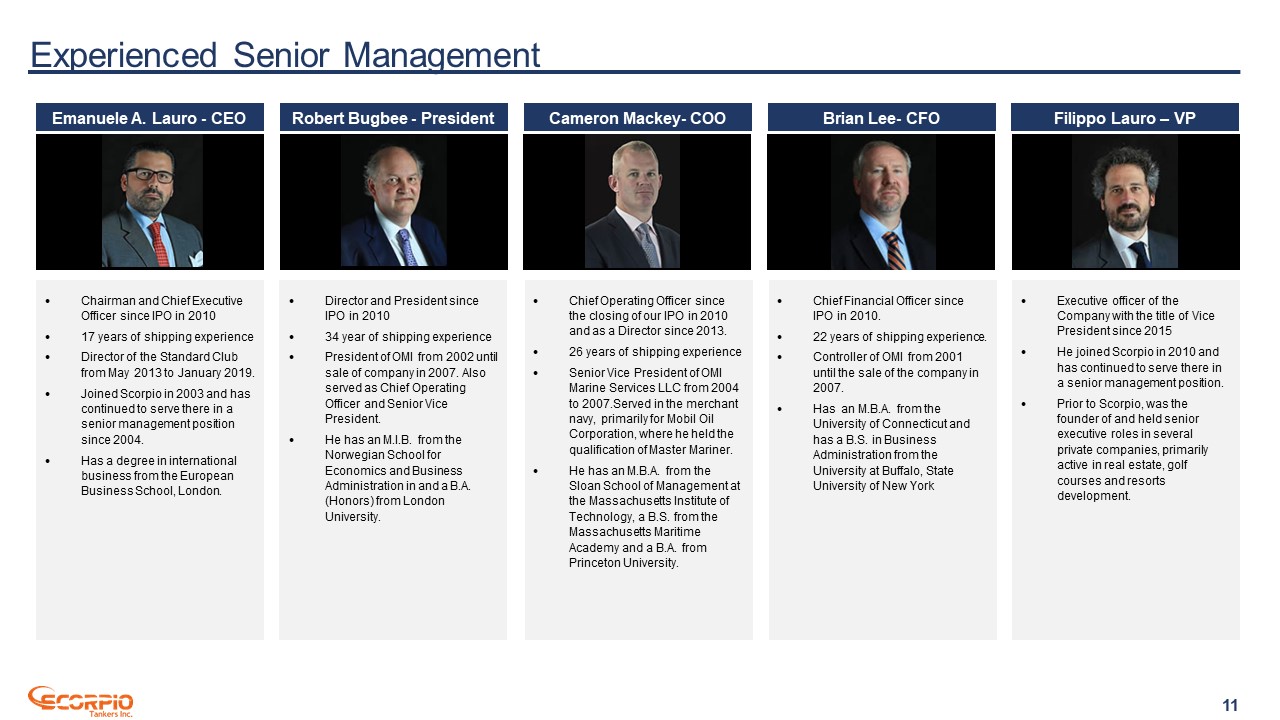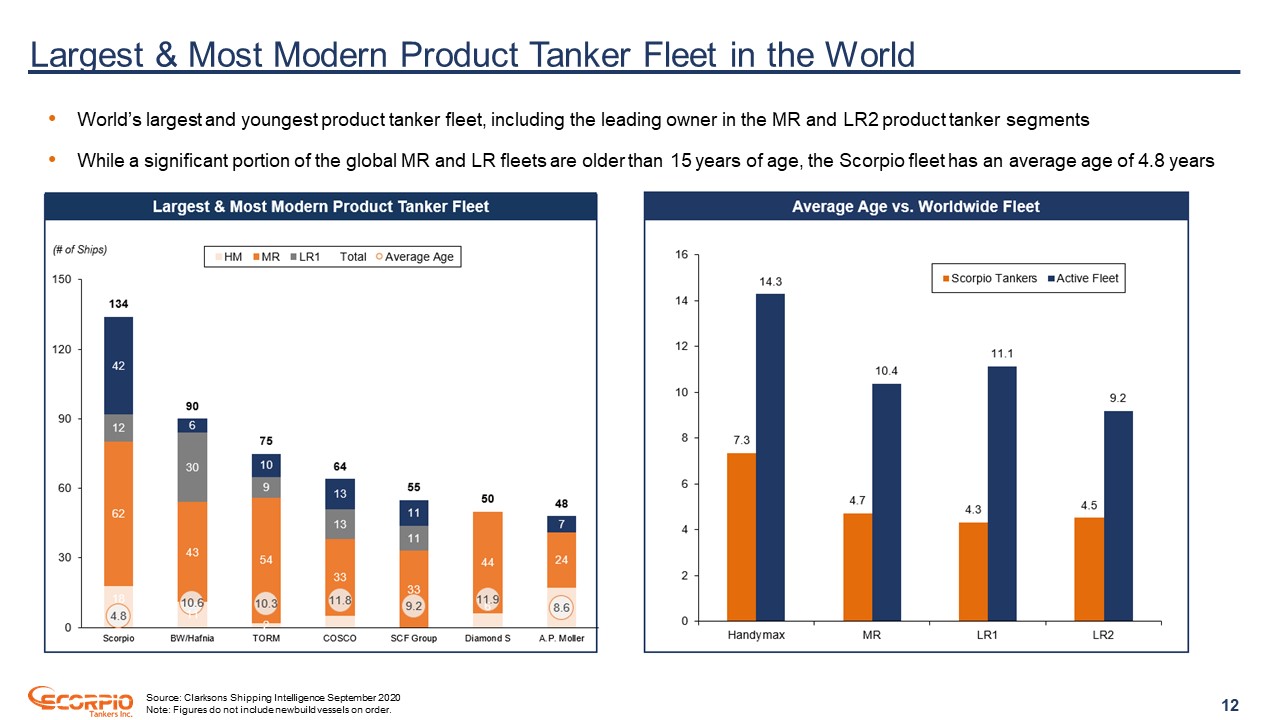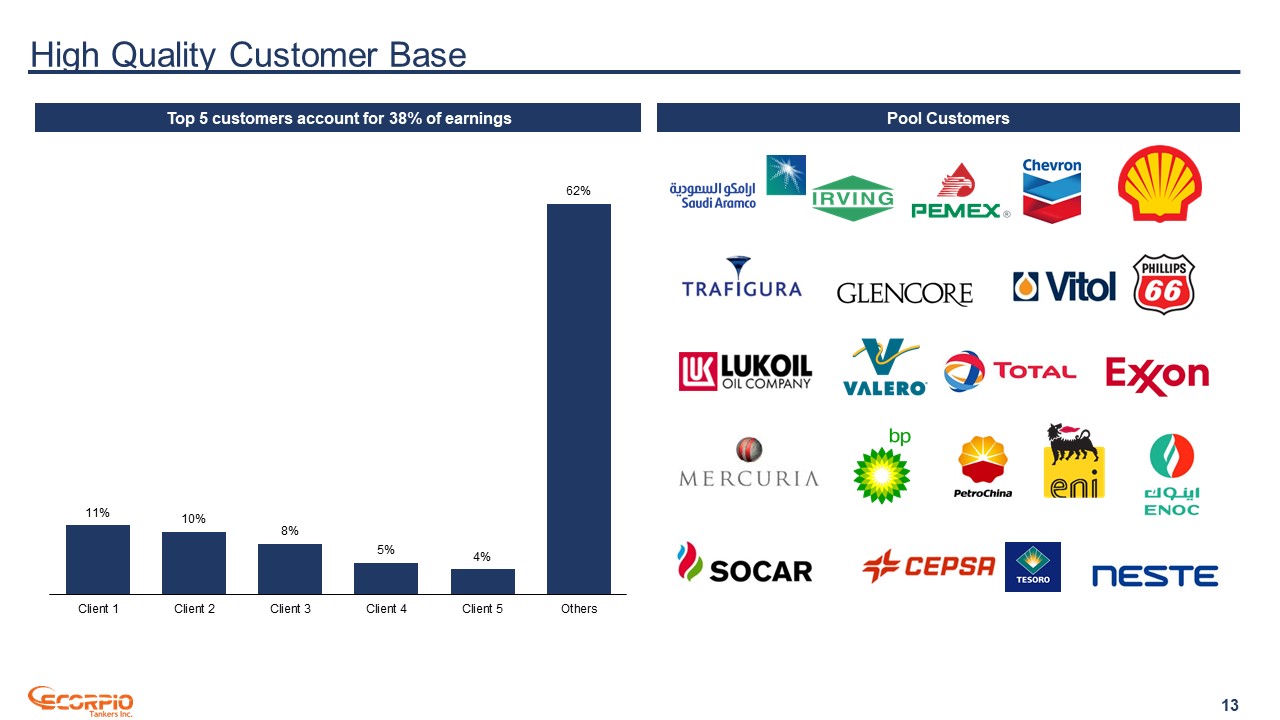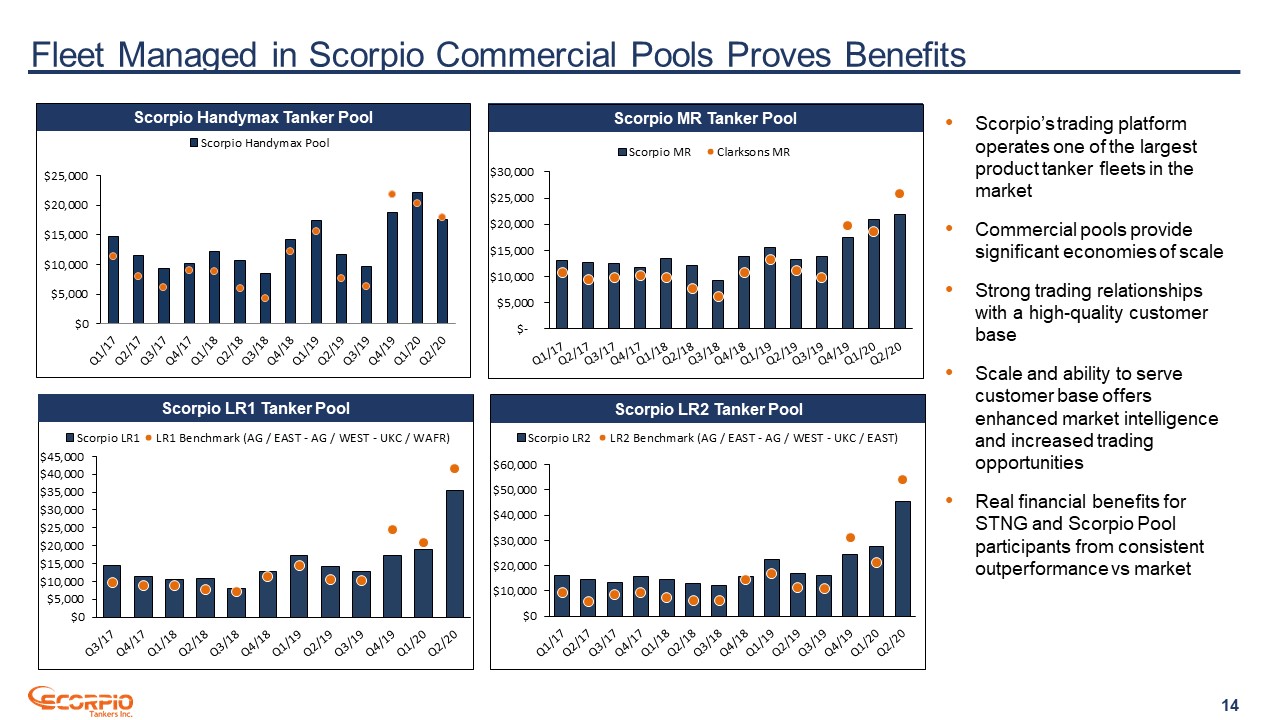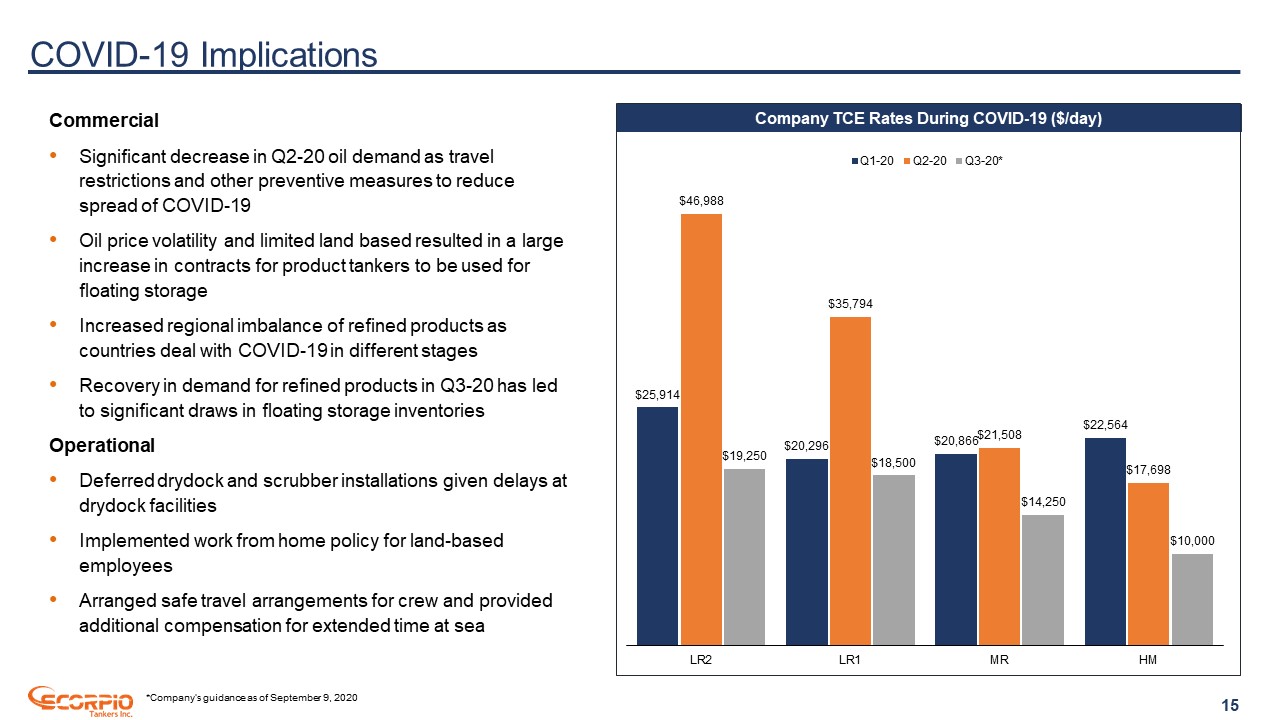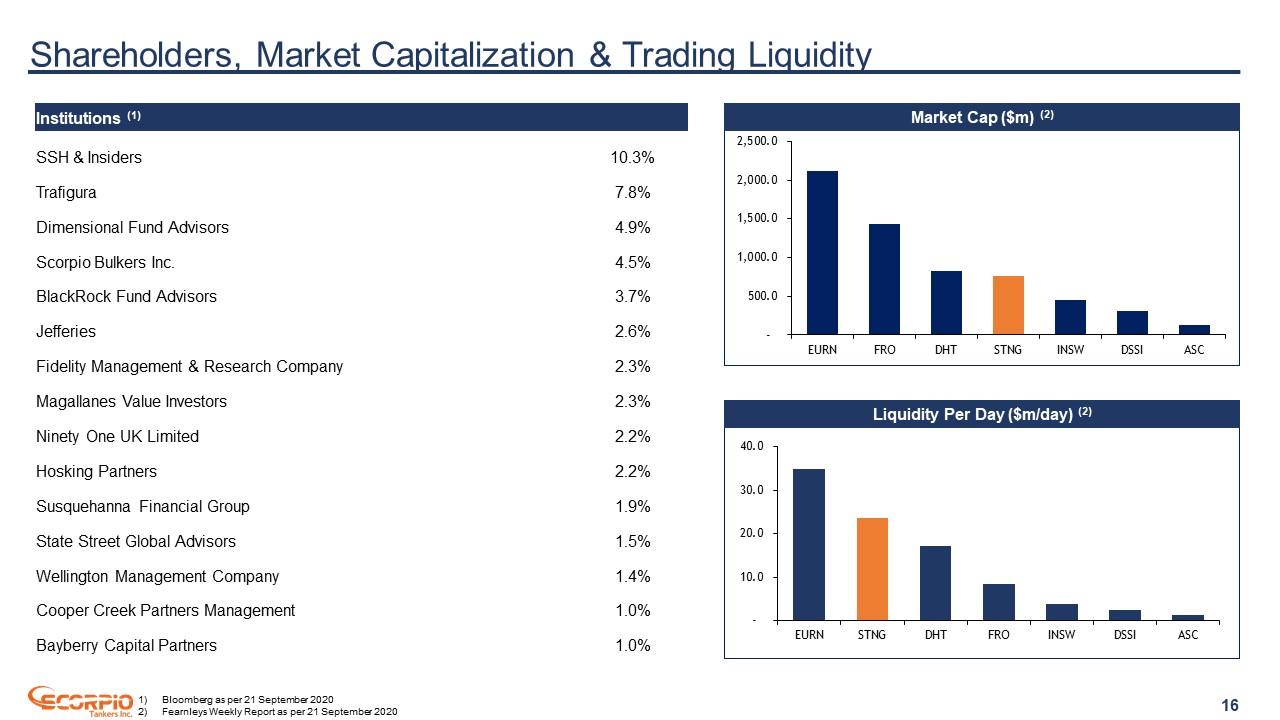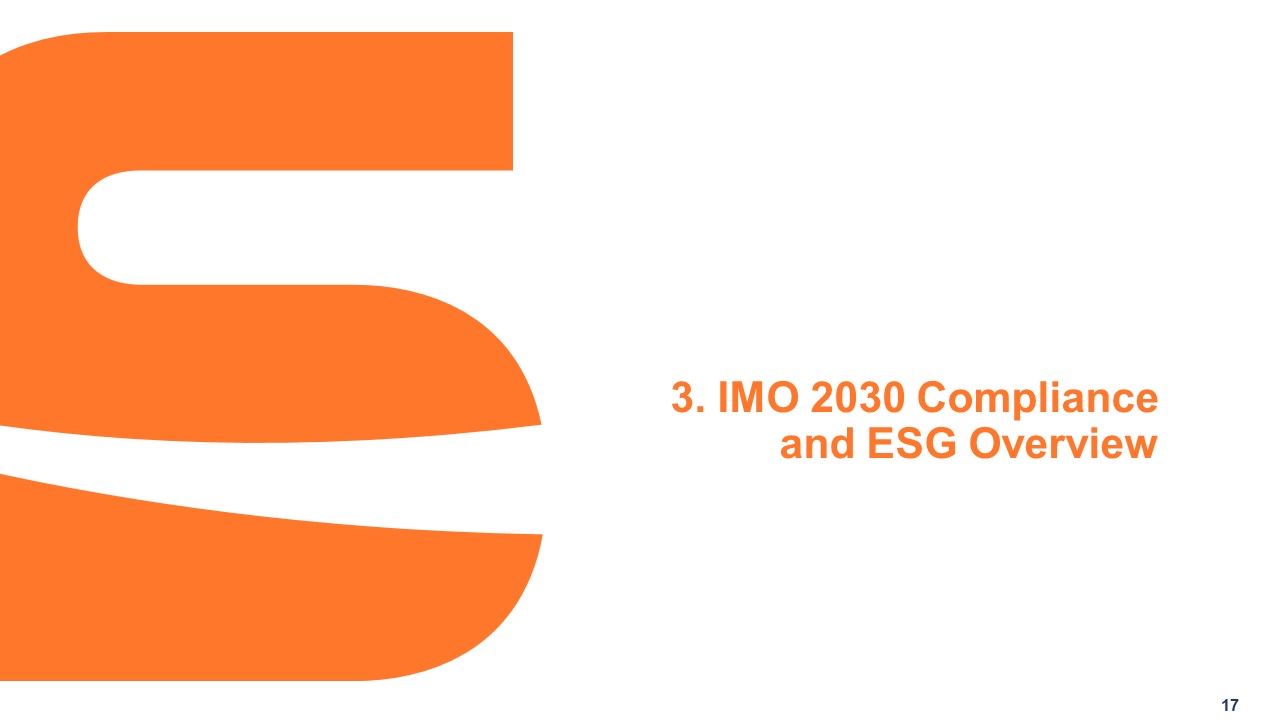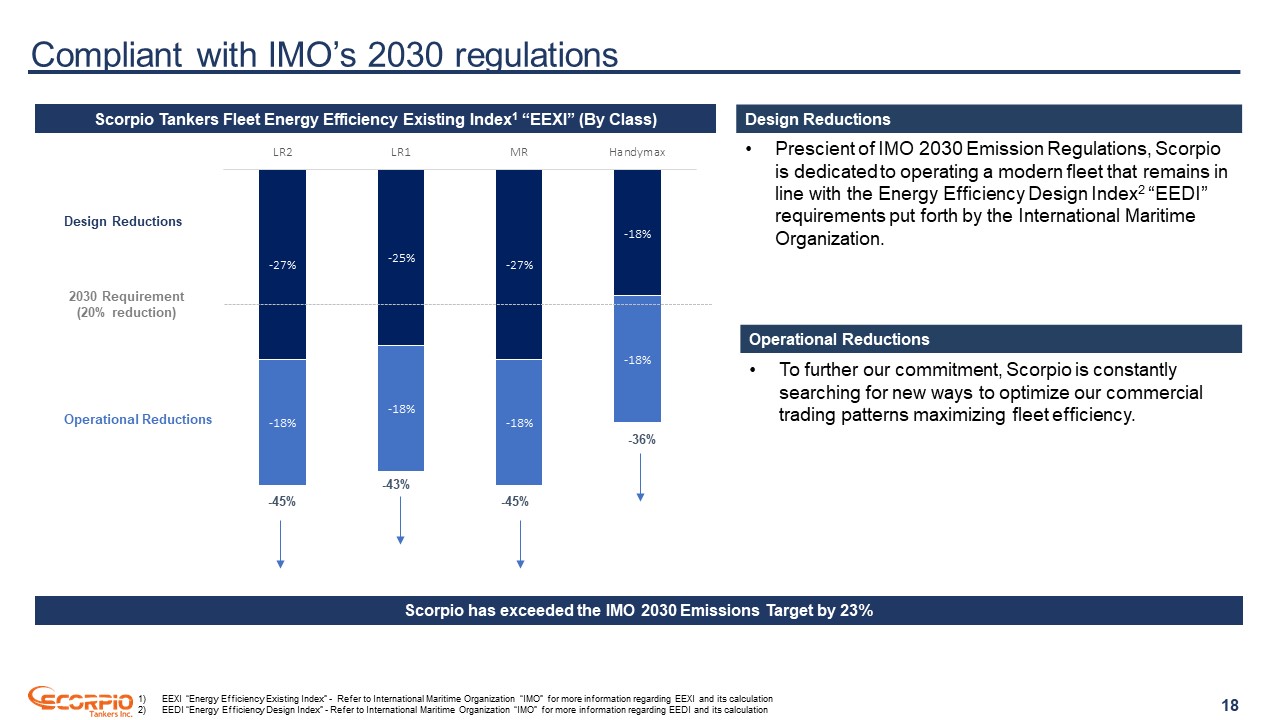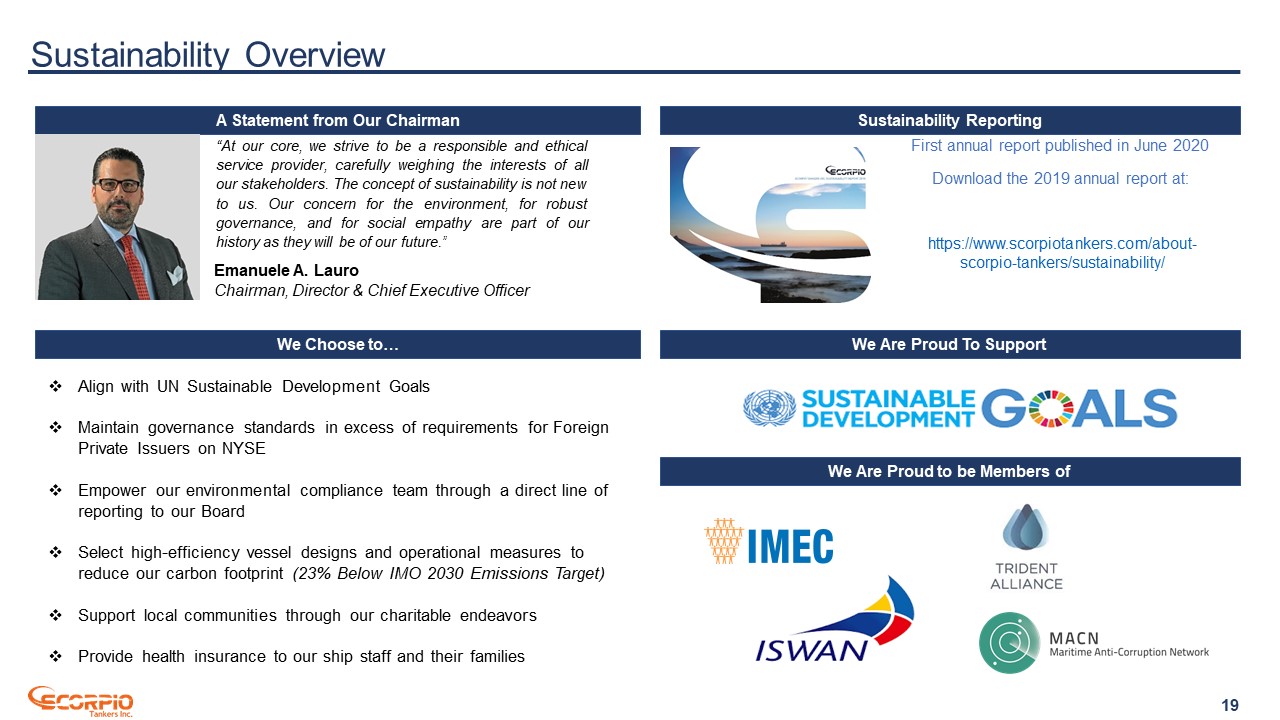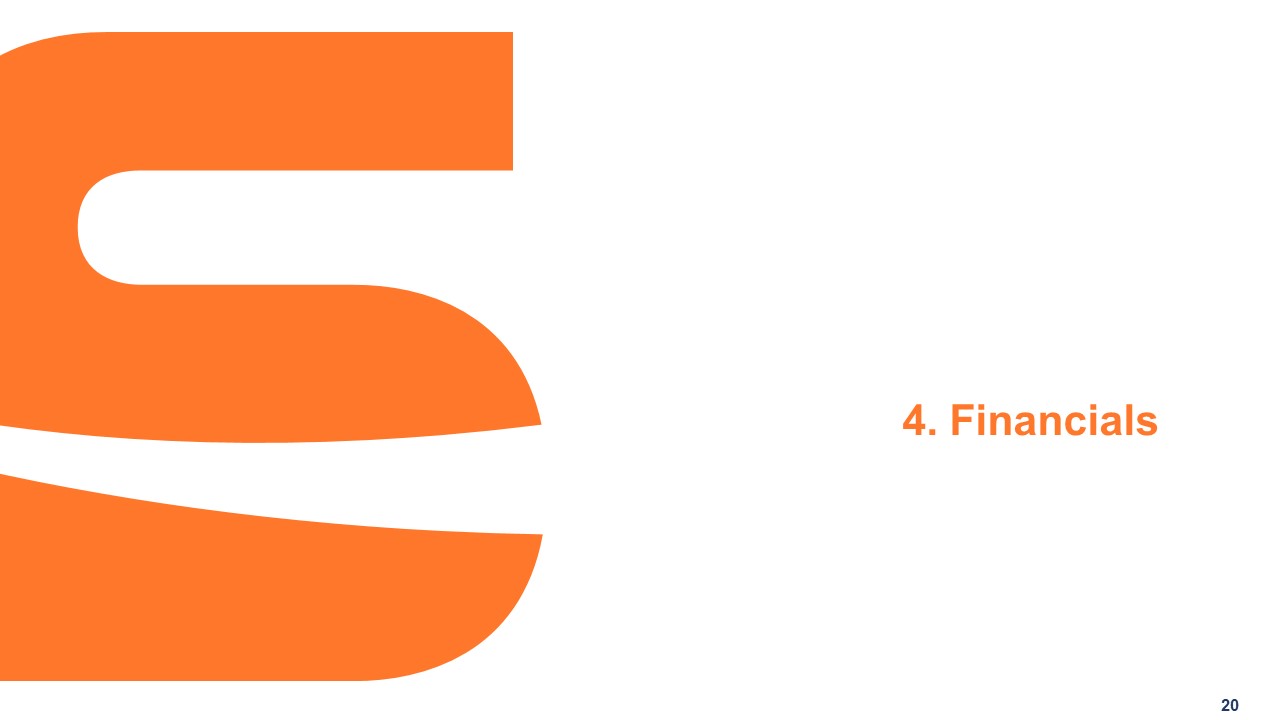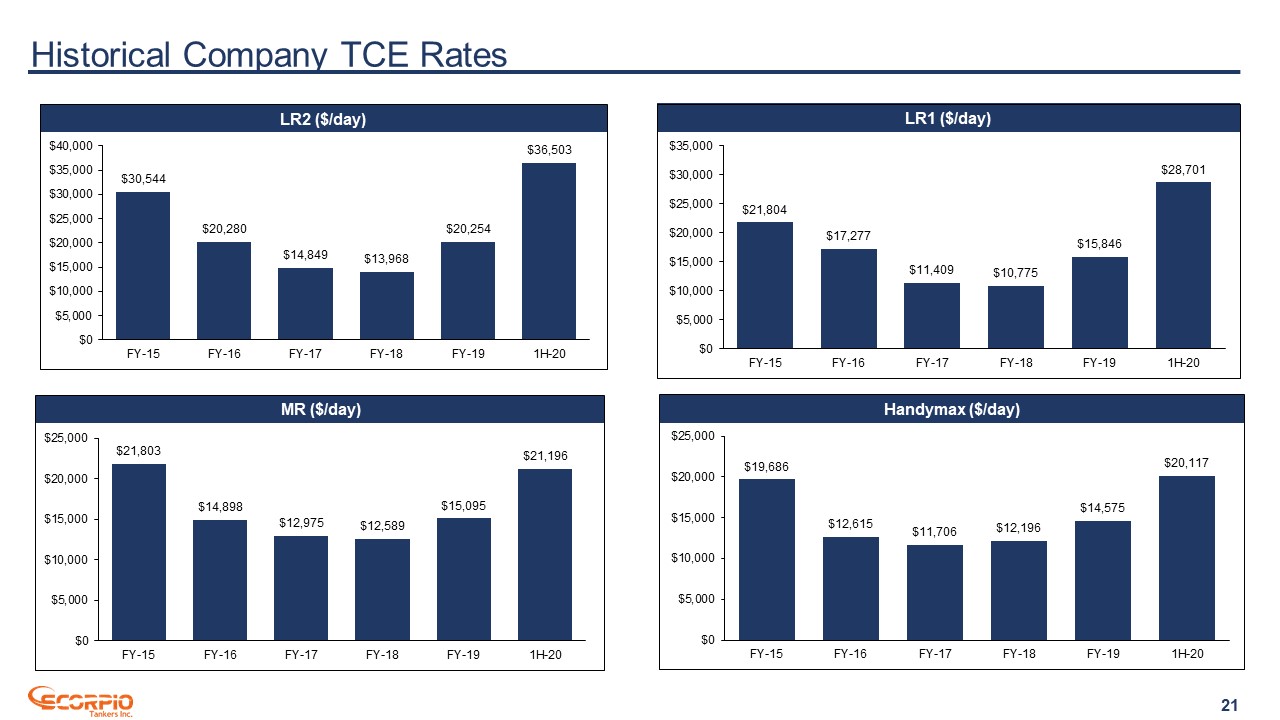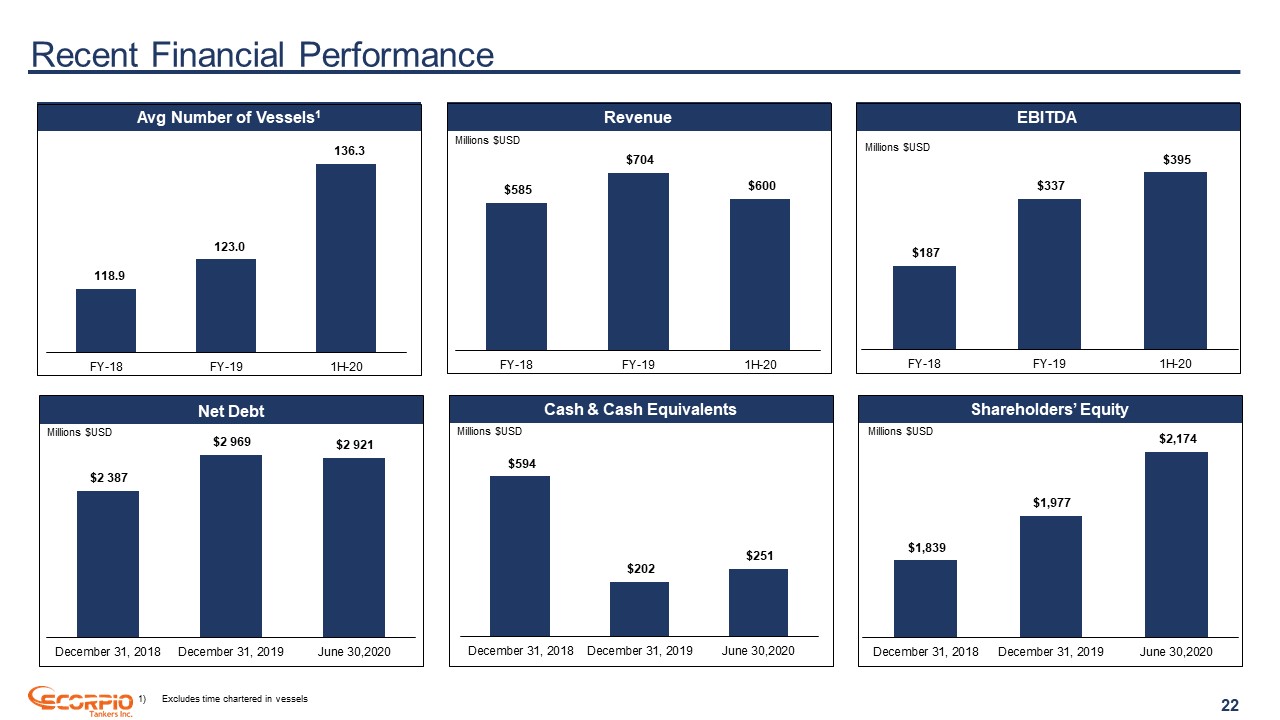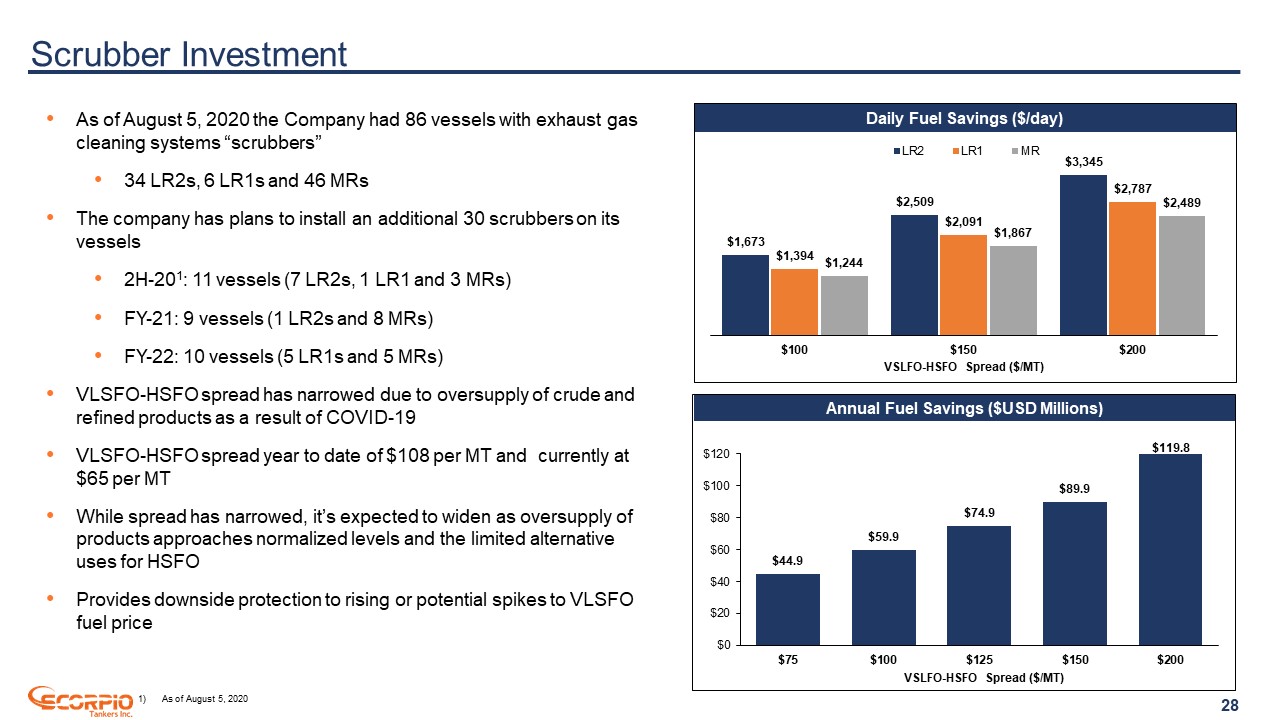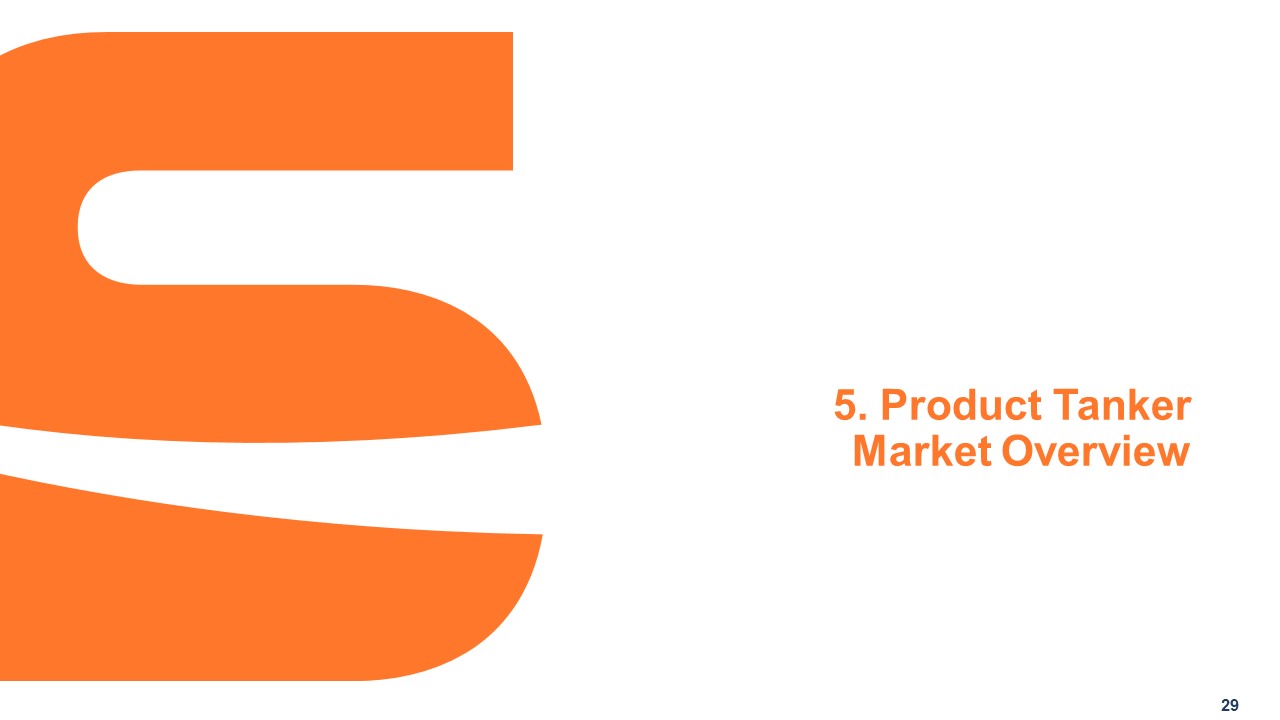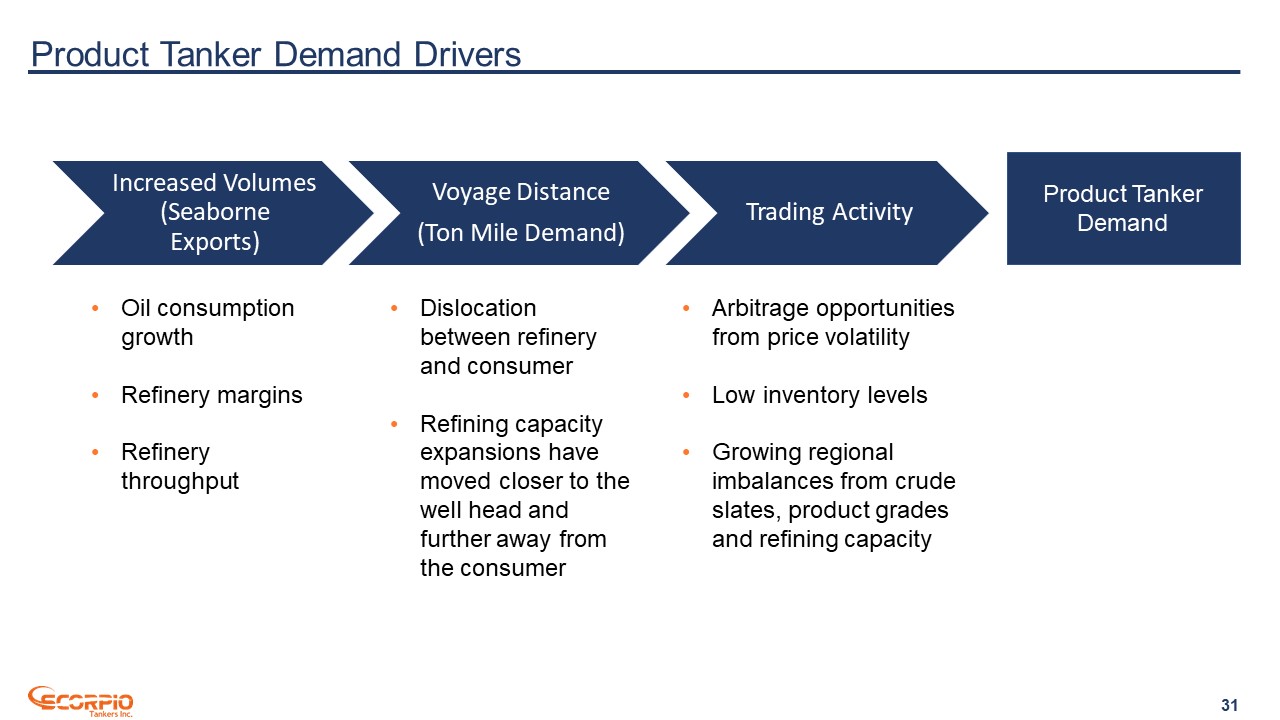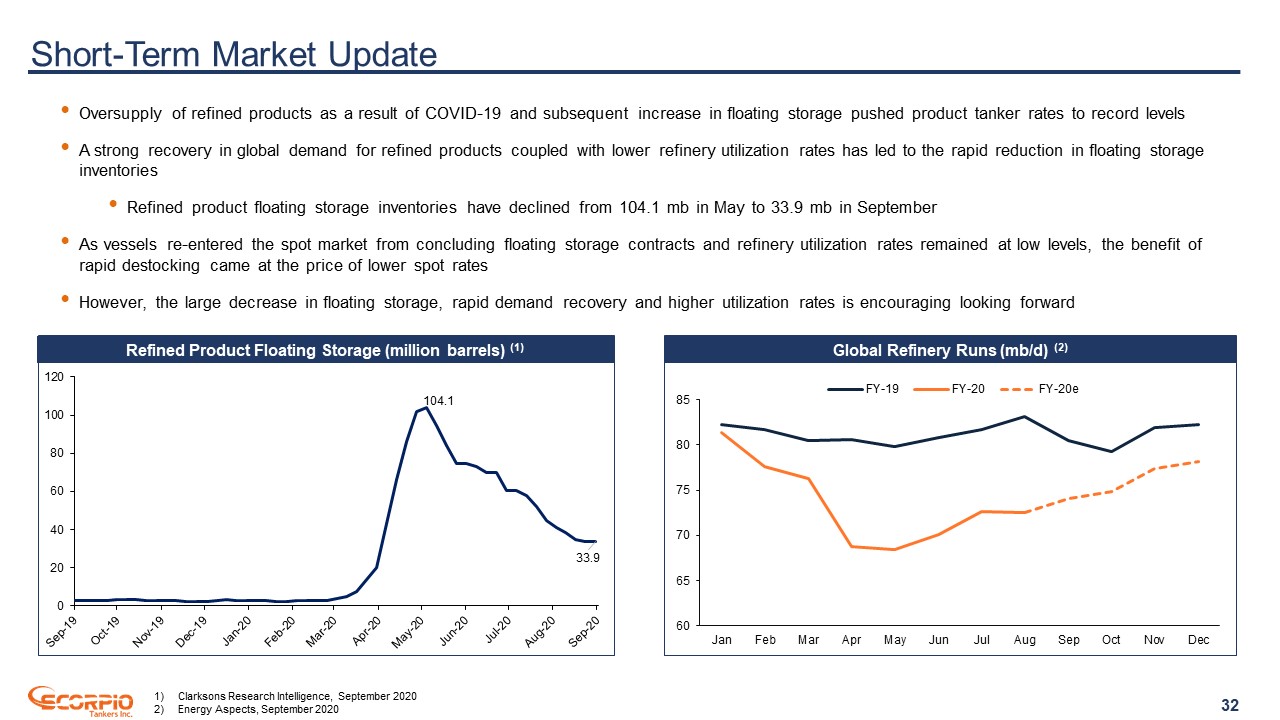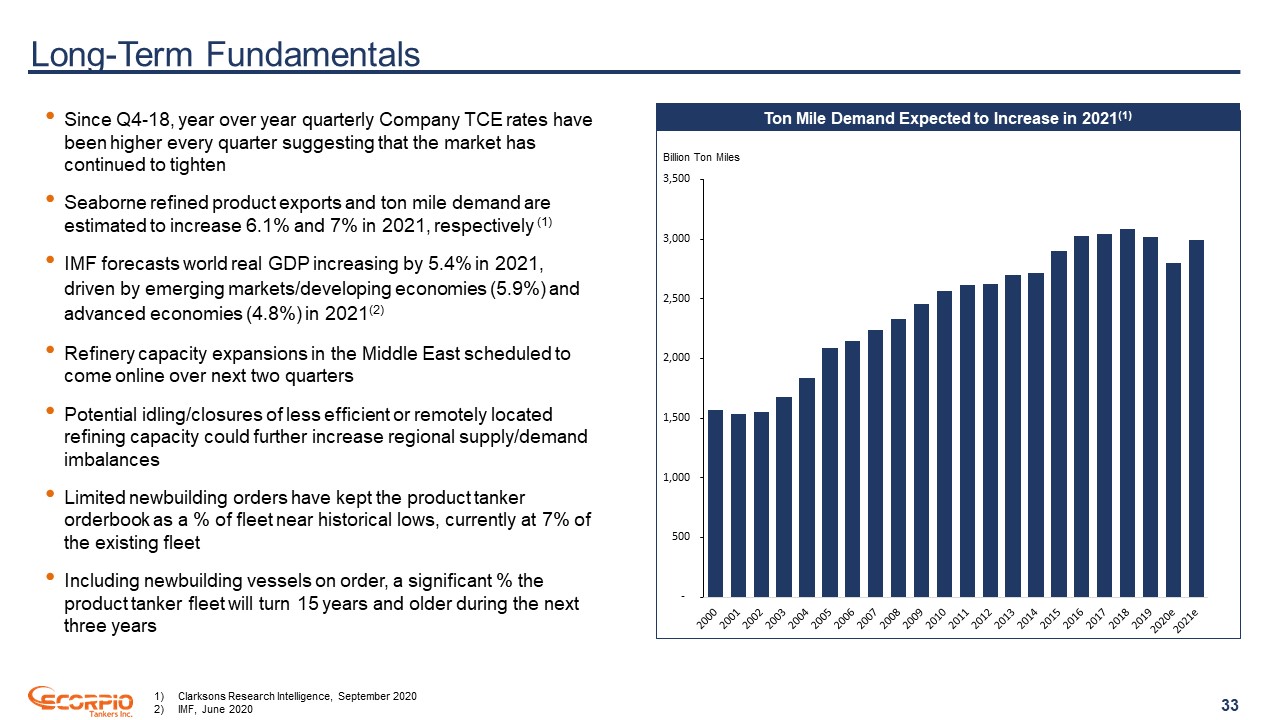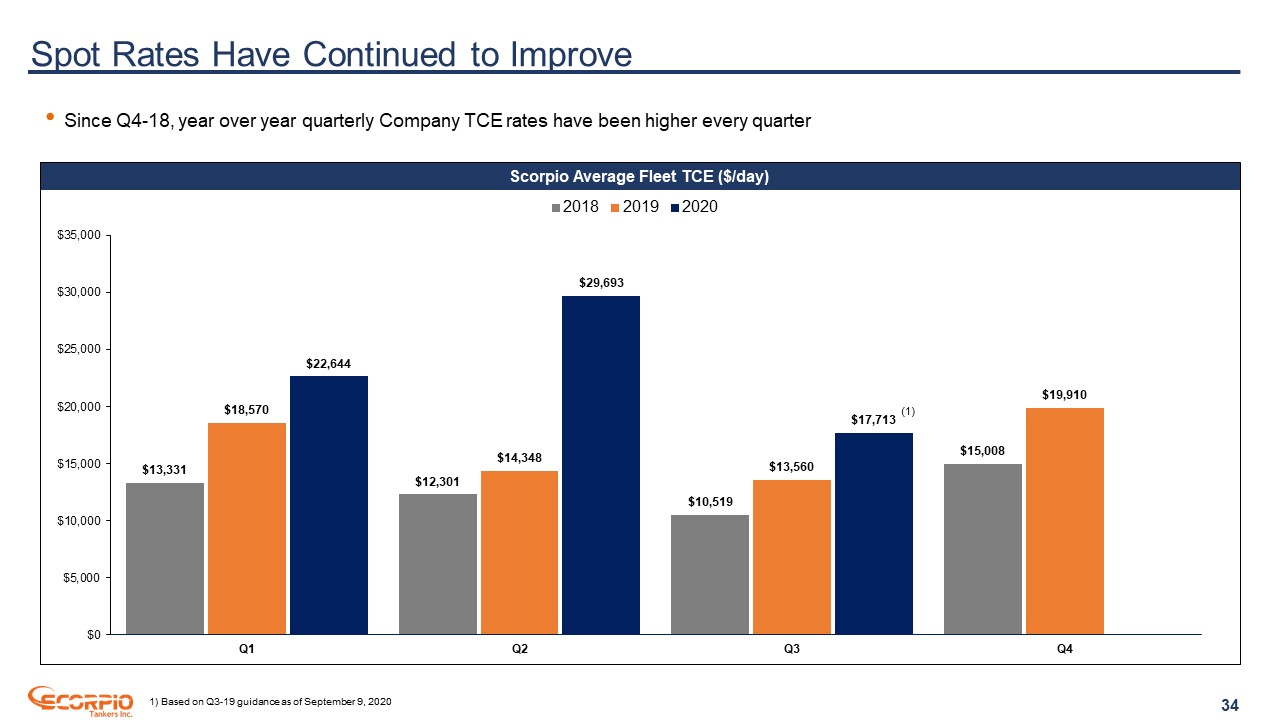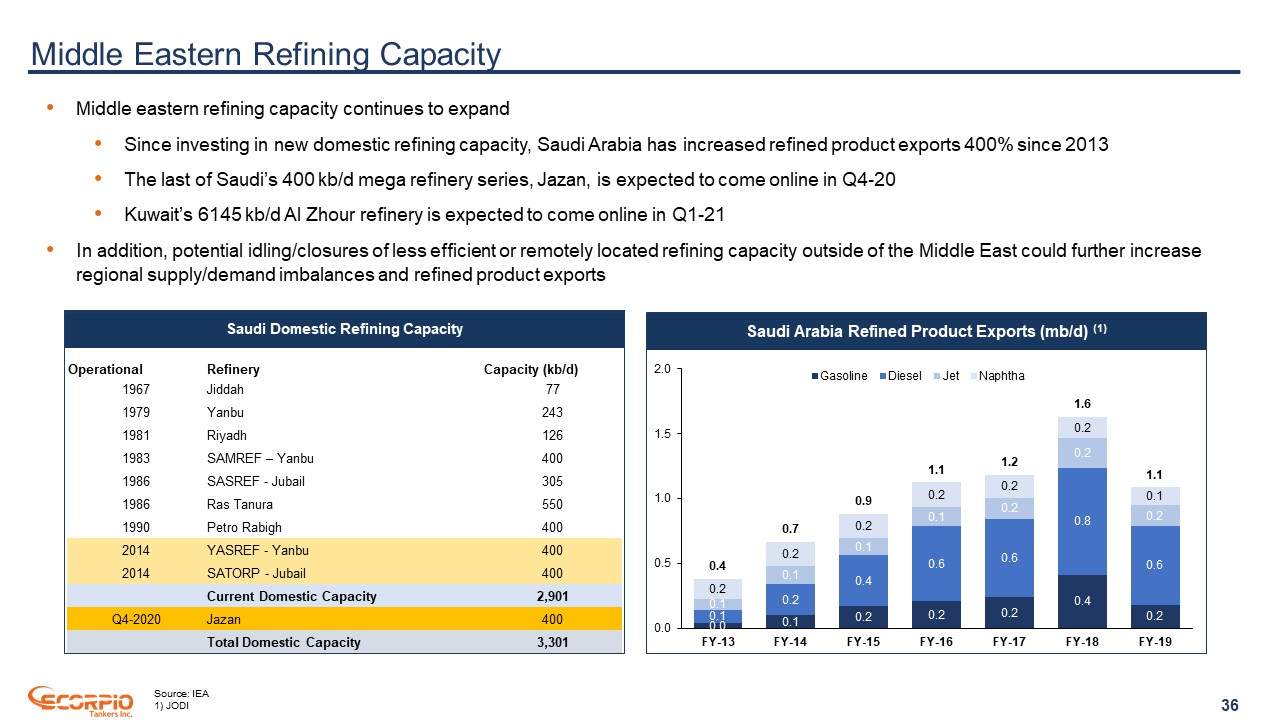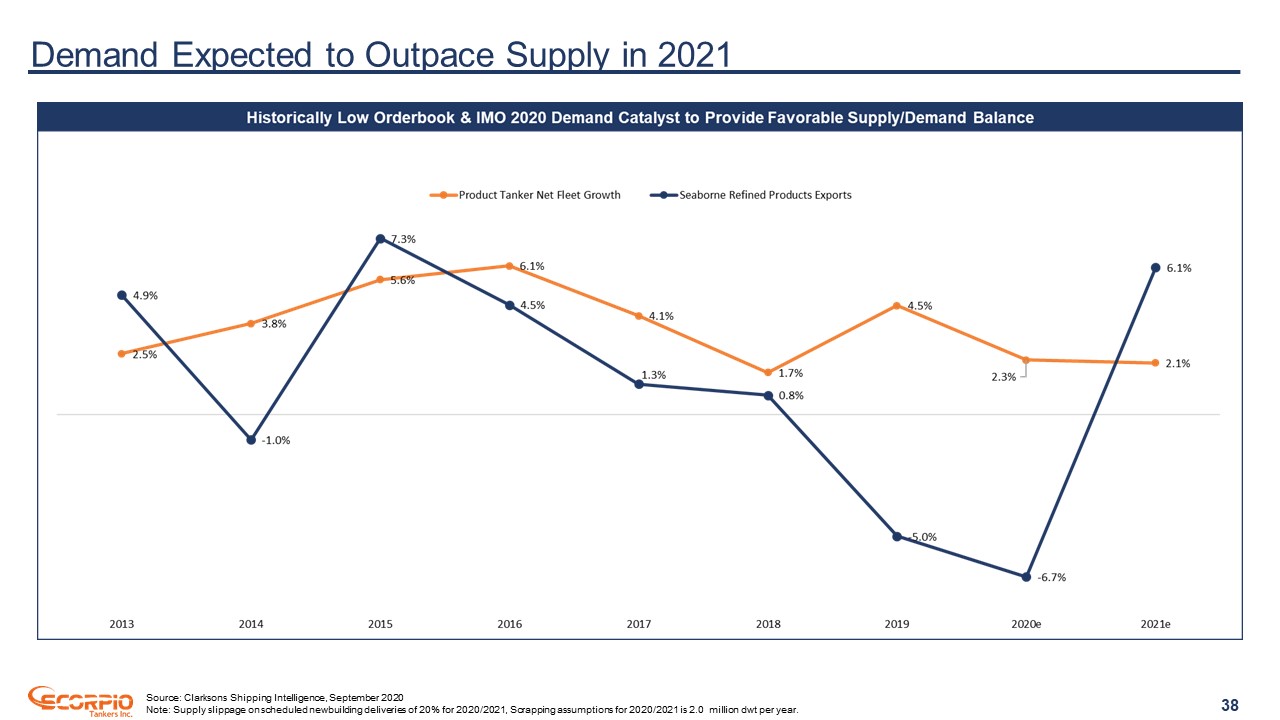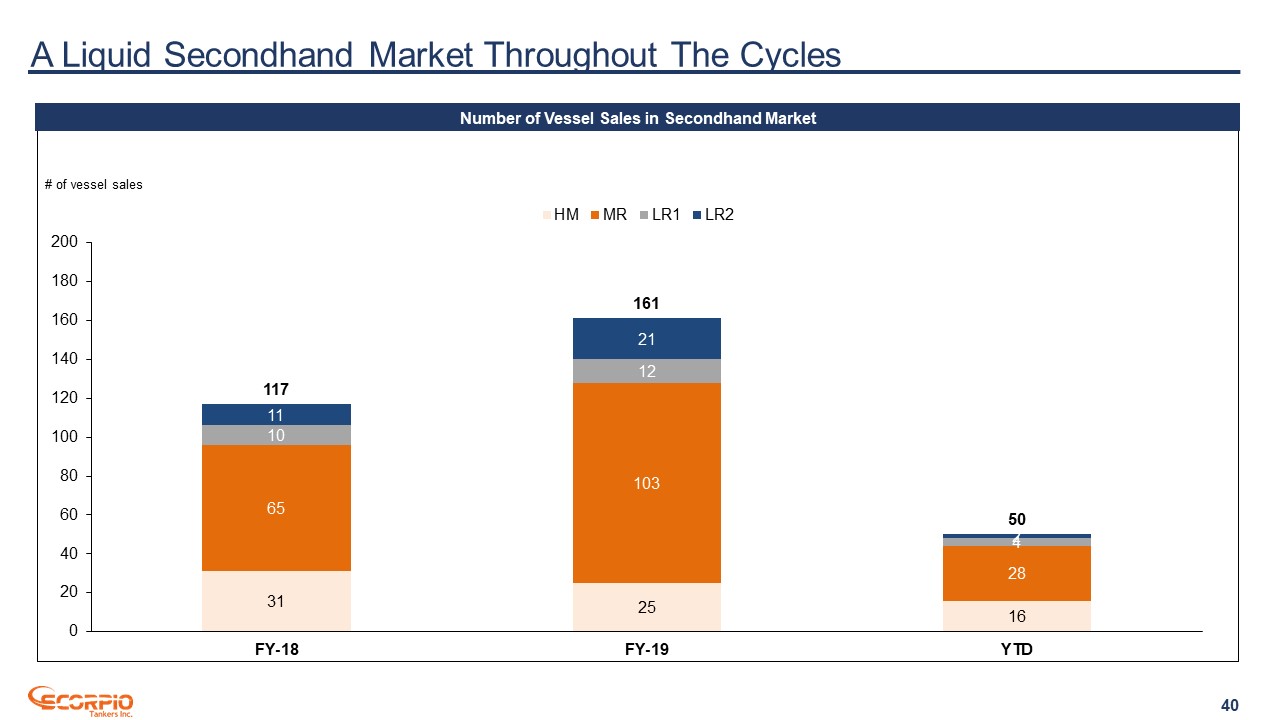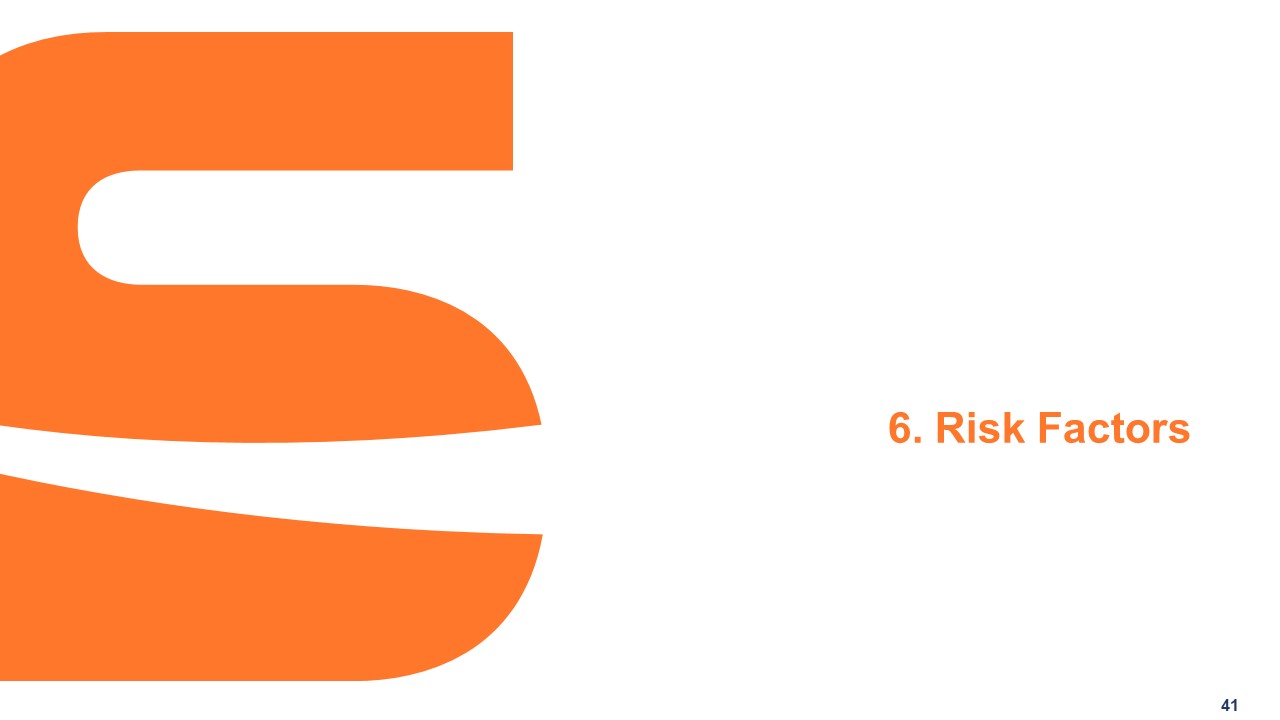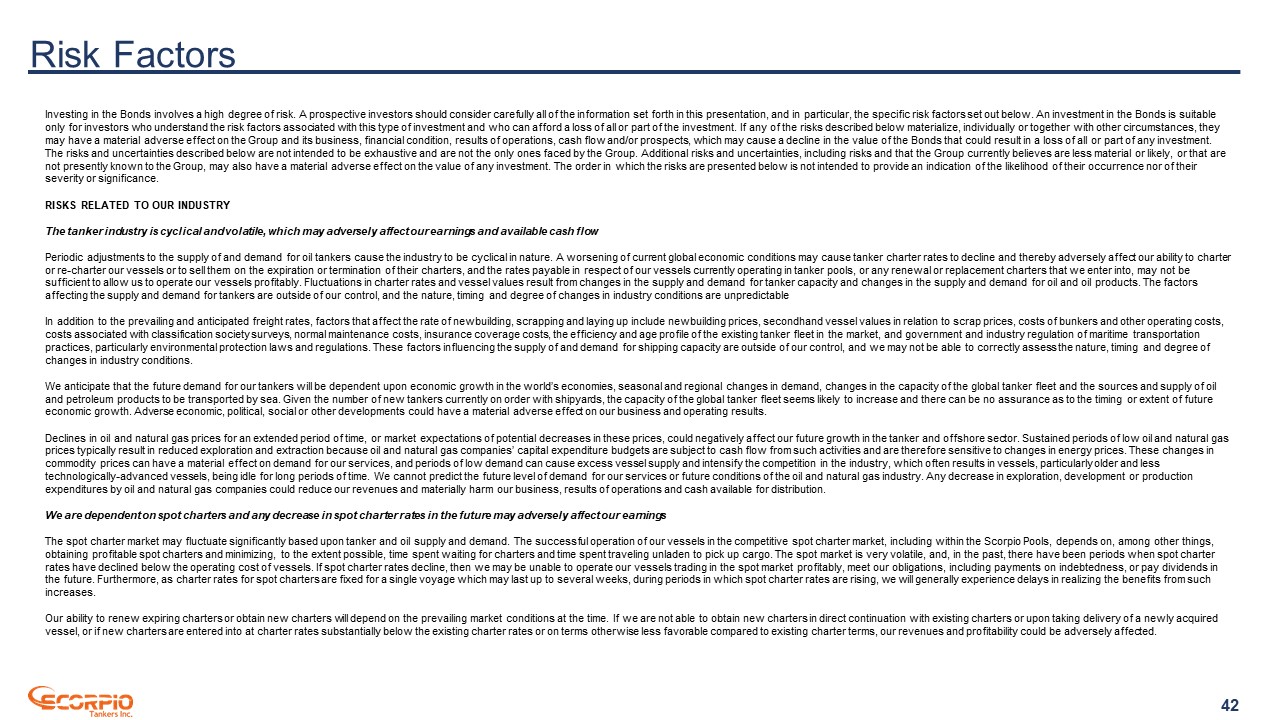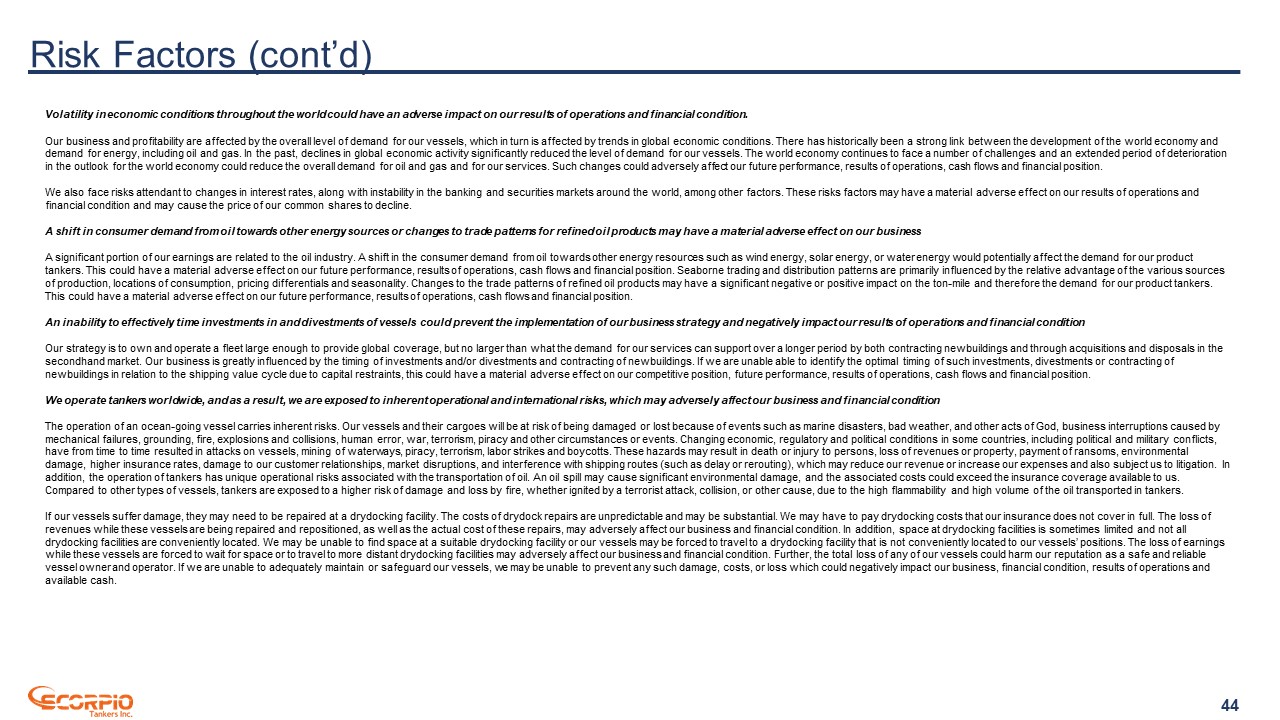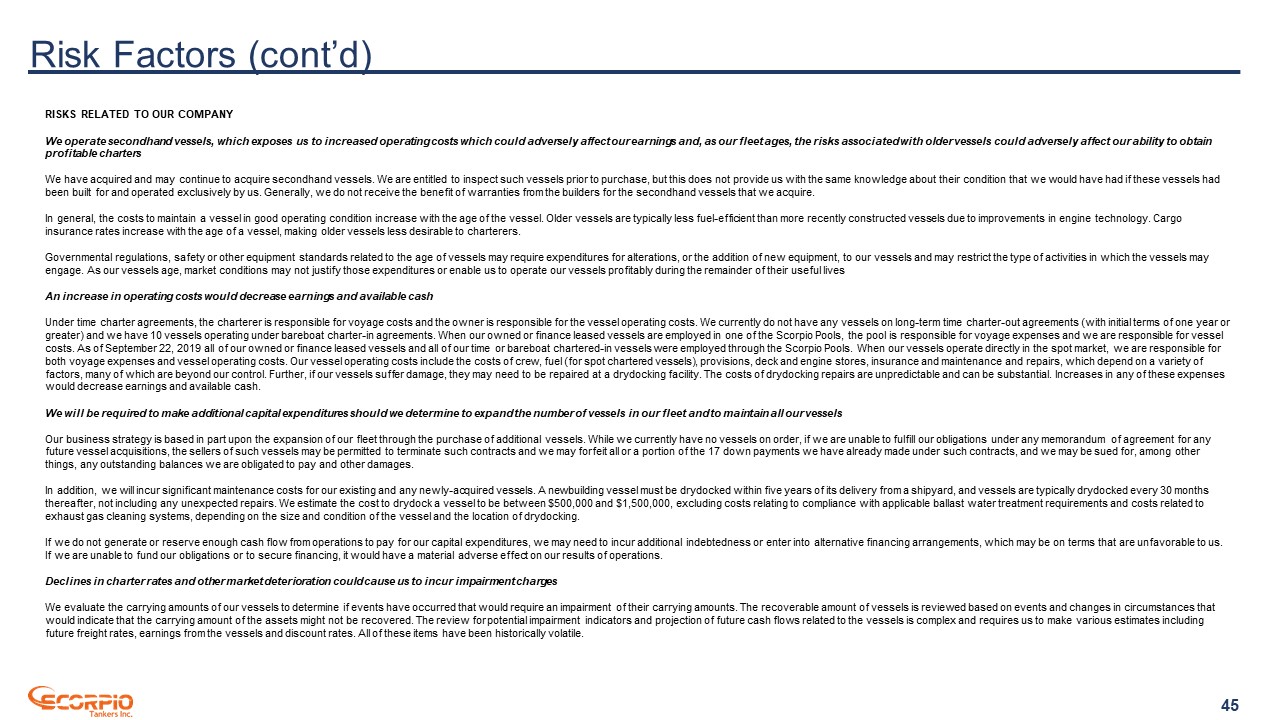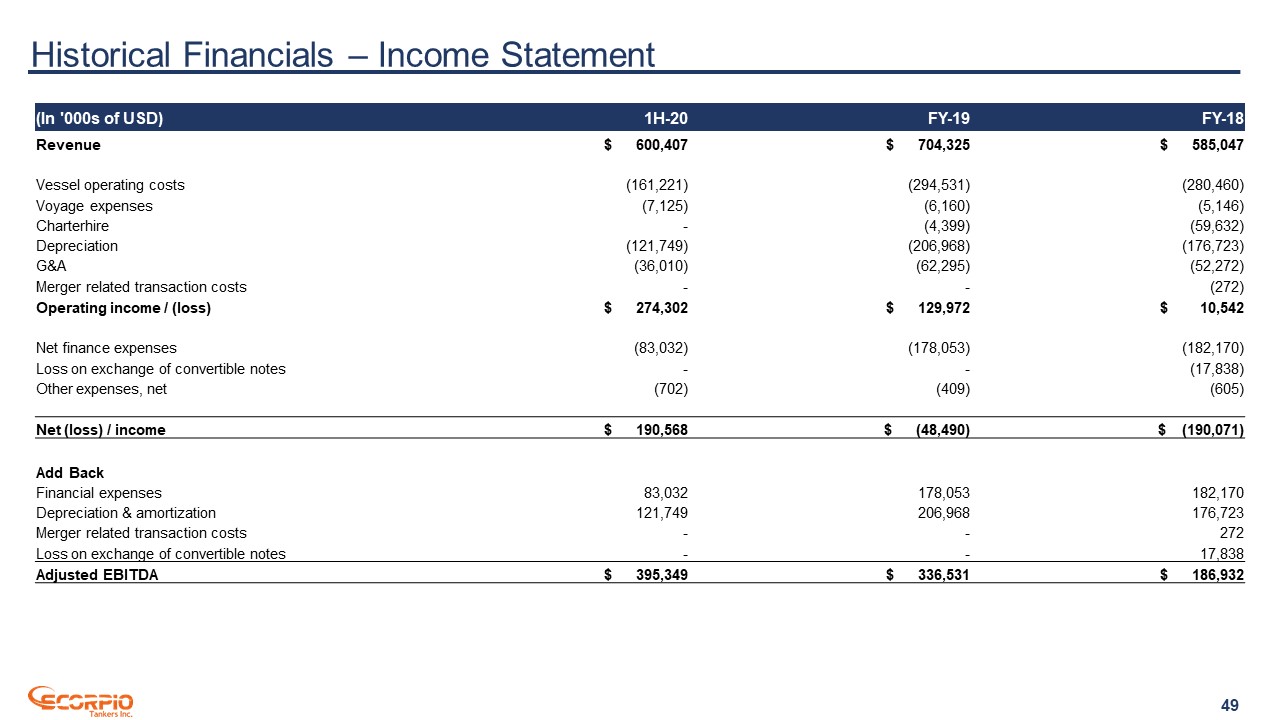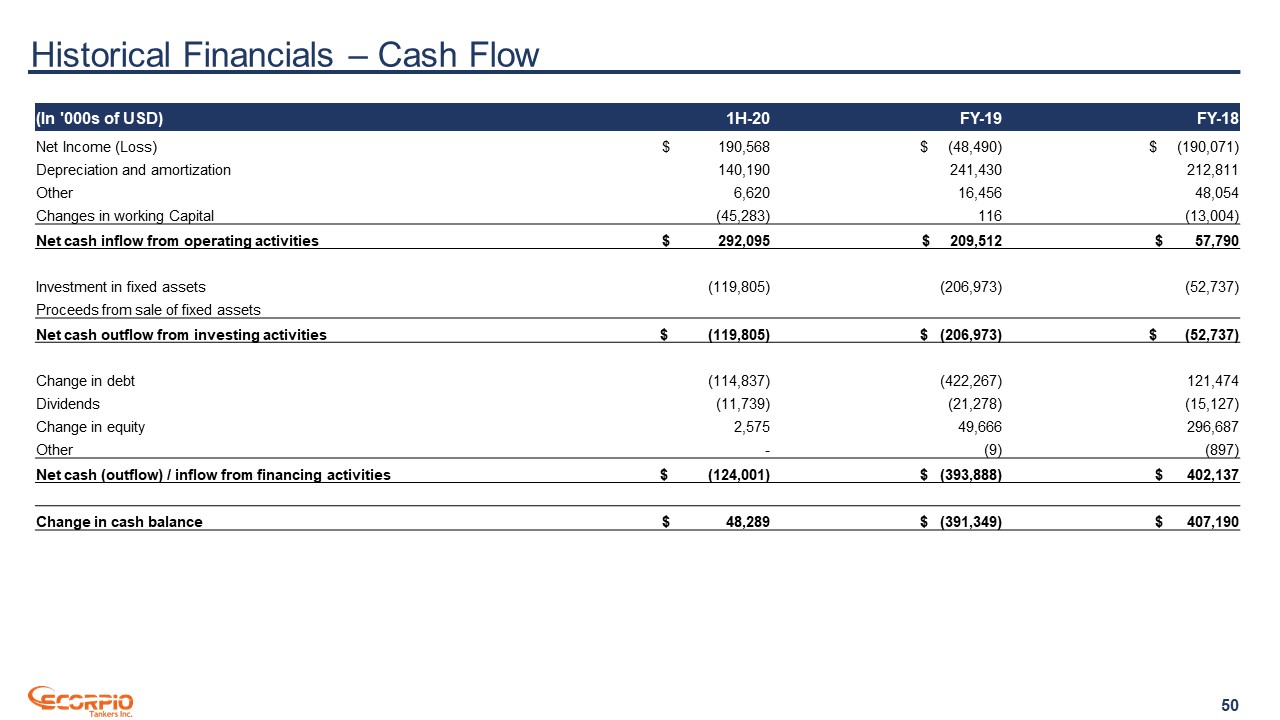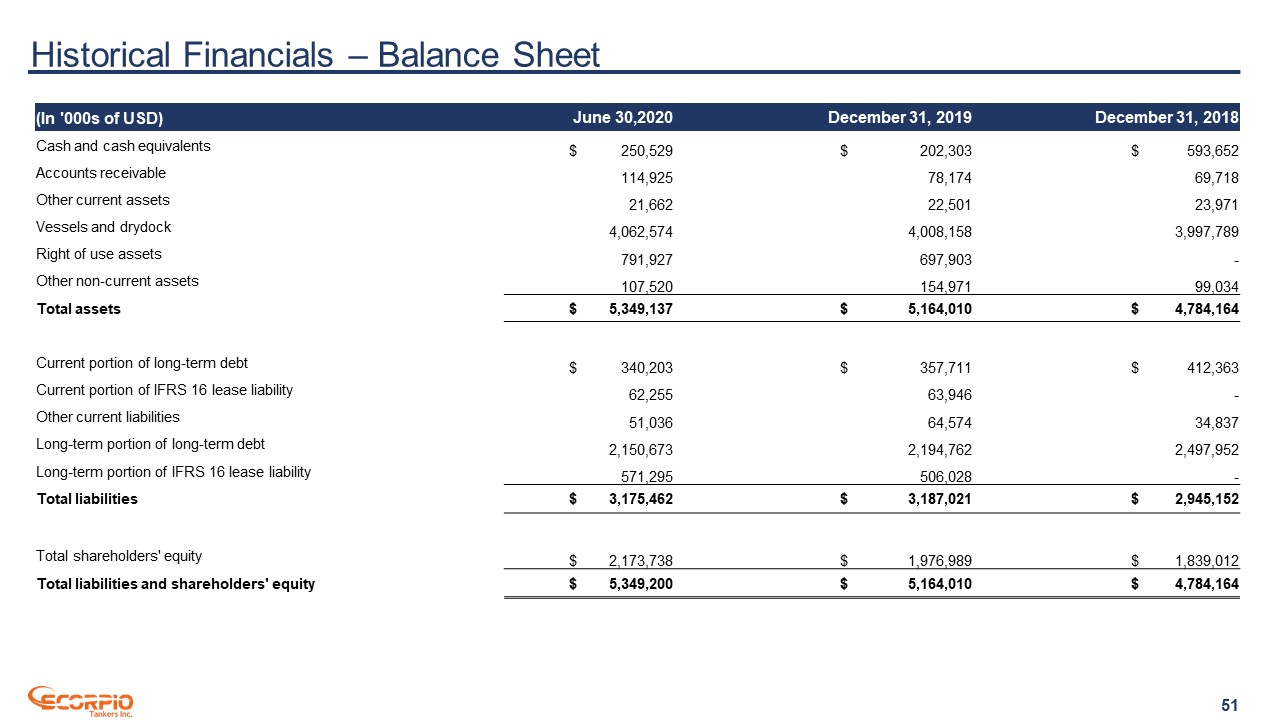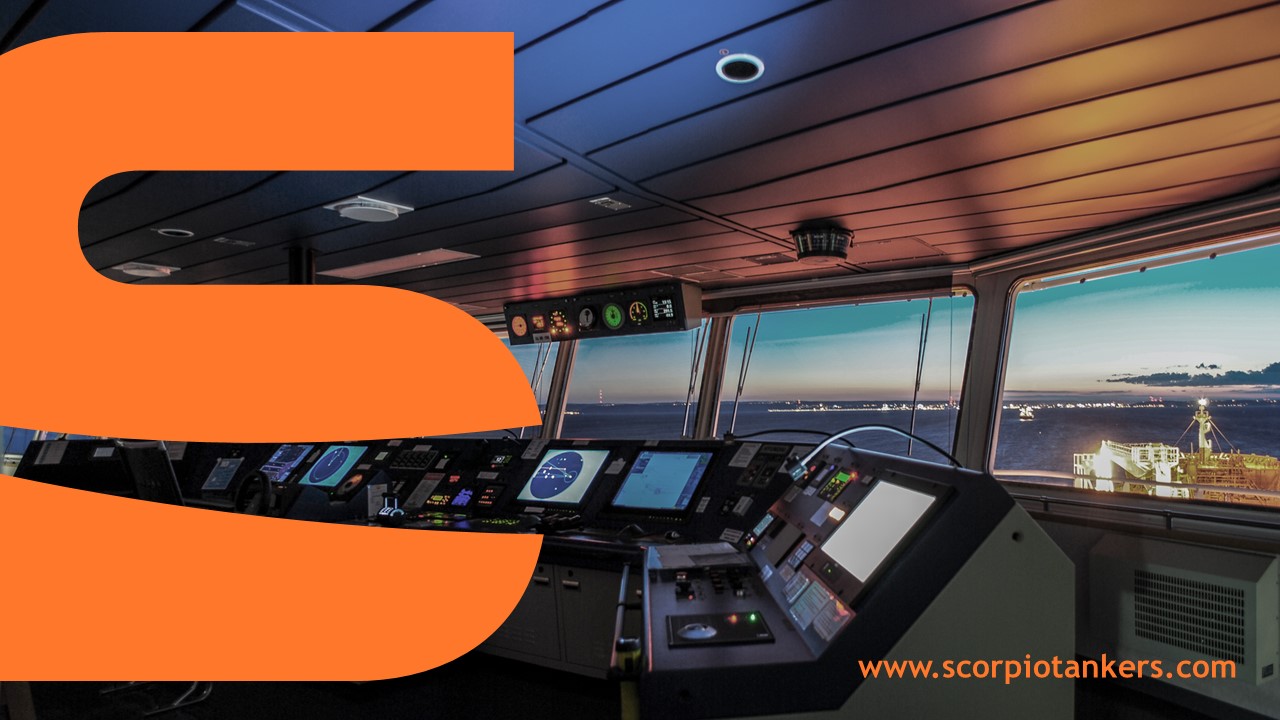Risk Factors (cont’d) The market values of our vessels may decrease, which could limit the amount of funds that we can borrow or trigger certain financial covenants under our current or future debt facilities and we may incur a loss if we sell vessels following a decline in their market valueThe fair market values of our vessels have generally experienced high volatility. The fair market values for tankers declined significantly from historically high levels reached in 2008 and remain at relatively low levels. Such prices may fluctuate depending on a number of factors including, but not limited to, the prevailing level of charter rates and day rates, general economic and market conditions affecting the international shipping industry, types, sizes and ages of vessels, supply and demand for vessels, availability of or developments in other modes of transportation, competition from other tanker companies, cost of newbuildings, applicable governmental or other regulations and technological advances. In addition, as vessels grow older, they generally decline in value. If the fair market values of our vessels decline we may not be in compliance with certain covenants contained in our secured credit facilities, which may result in an event of default. In such circumstances, we may not be able to refinance our debt, obtain additional financing or make distributions to our shareholders and our subsidiaries may not be able to make distributions to us. The prepayment of certain debt facilities may be necessary to cause us to maintain compliance with certain covenants in the event that the value of 18 the vessels falls below certain levels. If we are not able to comply with the covenants in our secured credit facilities, and are unable to remedy the relevant breach, our lenders could accelerate our debt and foreclose on our fleet.Additionally, if we sell one or more of our vessels at a time when vessel prices have fallen, the sale price may be less than the vessel’s carrying value on our consolidated financial statements, resulting in a loss on sale or an impairment loss being recognized, ultimately leading to a reduction in earnings. Furthermore, if vessel values fall significantly, this could indicate a decrease in the recoverable amount for the vessel which may result in an impairment adjustment in our financial statements, which could adversely affect our financial results and condition.If we do not set aside funds and are unable to borrow or raise funds for vessel replacement, at the end of a vessel’s useful life our revenue will decline, which would adversely affect our business, results of operations, financial condition, and available cashIf we do not set aside funds or are unable to borrow or raise funds, including through equity issuances, for vessel replacement, we will be unable to replace the vessels in our fleet upon the expiration of their remaining useful lives, which we expect to occur between 2037 and 2043, depending on the vessel. Our cash flows and income are dependent on the revenues earned by the chartering of our vessels. If we are unable to replace the vessels in our fleet upon the expiration of their useful lives, our business, results of operations, financial condition, and available cash per share would be adversely affected. Any funds set aside for vessel replacement will reduce available cash.We are subject to certain risks with respect to our counterparties on contracts, including our vessel employment arrangements, and failure of such counterparties to meet their obligations could cause us to suffer losses or negatively impact our results of operations and cash flowsWe have entered into, and may enter into in the future, various contracts, including, without limitation, charter and pooling agreements relating to the employment of our vessels, newbuilding contracts, debt facilities, and other agreements. Such agreements subject us to counterparty risks. The ability and willingness of each of our counterparties to perform its obligations under a contract with us will depend on a number of factors that are beyond our control and may include, among other things, general economic conditions, the condition of the maritime and offshore industries, and the overall financial condition of the counterparty.In addition, with respect to our charter arrangements, in depressed market conditions, our charterers may no longer need a vessel that is then under charter or may be able to obtain a comparable vessel at lower rates. As a result, charterers may seek to renegotiate the terms of their existing charter agreements or avoid their obligations under those contracts. If our charterers fail to meet their obligations to us or attempt to renegotiate our charter agreements, it may be difficult to secure substitute employment for such vessel, and any new charter arrangements we secure in the spot market or on time charters may be at lower rates. As a result, we could sustain significant losses which could have a material adverse effect on our business, financial condition, results of operations and cash flows, as well as our ability to pay dividends on our common shares and interest on our debt securities and comply with covenants in our credit facilities.RISK RELATED TO THE BONDBonds are senior unsecured obligations and are effectively subordinated to the Company's secured debt. In the event of a bankruptcy, restructuring or similar proceeding involving the Company or a subsidiary, the assets that serve as collateral will be available to satisfy the obligations under any secured debt before any payments are made on the bonds, and investors may lose the value of their entire investment in the bonds (including coupon and other interest thereon) or part of it, as the case may be.



